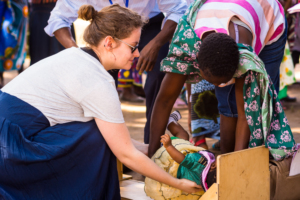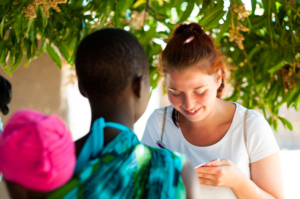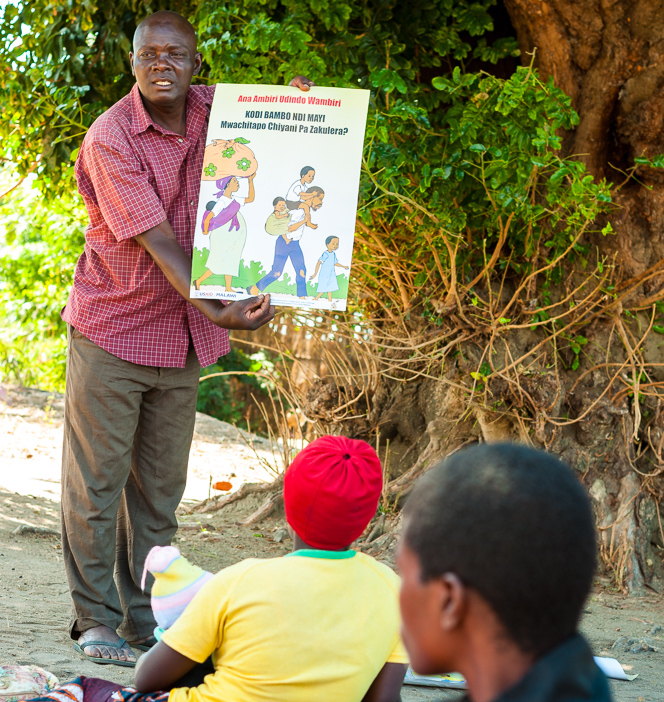Outreach Program
From birth until the age of five, a Malawian child is over 15 times more likely than a child from a developed country to die from mostly preventable causes such as malnutrition, diseases for which vaccines are available, and lack of knowledge about common health practices (data from The World Bank). In Malawi, rural health centers monitor children’s health, provide vaccines, and educate mothers about important health practices such as breastfeeding, hygiene, family planning, and HIV/AIDS prevention. However, most of the 17,474 people who live within Lifuwu Health Center’s catchment area live between 10 and 30 kilometers from the health center which makes it difficult for people to access these services at the actual facility.
The Role of the Volunteer:
Volunteers travel twice weekly in the morning to assist Lifuwu Health Center staff with Outreach. This involves riding in the help2kids vehicle to the rural surrounding villages and helping weigh babies using a hanging sling scale, measure children’s height using a length board, and recording the data in each child’s health passport book. Volunteers have the opportunity to interact with the community and to see what life is like in a very small village, far away from paved roads, shops, and electricity. Since these villages are very small and conservative, we ask that volunteers wear modest clothing to Outreach, especially that female volunteers wear long skirts that reach below the knee.
 |
 |
 |



